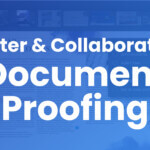So, you made a mistake. Perhaps you missed a meeting, forgot to attach an important file, or sent out that test newsletter to the entire list of 11,000 subscribers.
What now?
However careful you are, mistakes are bound to happen. What really matters in the long term is how you respond and how you address them.
Knowing how to truly grasp, acknowledge, and move forward from a mistake not only makes you better at your job, but it also makes you more productive and a more effective collaborator.
How We Tend to React to Mistakes
One way of limiting the damage of a mistake is by taking care to steer clear of counterproductive responses. Often, before we even have a chance to think about and acknowledge a mistake, we’ve already reacted… possibly not in a particularly helpful way!
Responding Defensively
Having a mistake you made pointed out can be deflating. Responding defensively is your brain’s attempt to avoid feelings of guilt, shame, and humiliation by shifting the focus.
When your mistake is highlighted, it also represents a serious blow to your self-esteem. It can feel like a threat to your job security (or stability), making it even more understandable that you’d want to fight back.
However, acting defensively can seriously harm your working relationships and undermine your collaborative work. Instantly trying to justify yourself, downplaying the mistake, or mentioning mistakes made by others, makes it seem as though you’re not prepared to take responsibility. This could lead people avoiding giving you feedback in the future.
As psychologist Rick Hanson explains: “The interaction—and even the relationship—gets stuck on the unadmitted fault and is shadowed, dragged down, and constrained as a result.” A simple admission of fault can protect (and even strengthen) the working relationship.
Deflection
Then there’s the question of blame. We all know that trying to pin a mistake on someone else when we know it’s our fault isn’t a productive or professional way to respond. However, it’s also very easy to slip into deflection when things are a little grayer.
You may find yourself thinking (or even saying) ”If X had only done that” or “If Y situation hadn’t distracted me”. While it’s vital to understand why a mistake happened and to identify circumstances beyond your control, focusing too much on blame keeps you from learning from the mistake. Even worse, the tendency to blame can quickly spread through a team, poisoning the culture and making everyone more risk-averse and less creative.
Ignoring a Mistake
Trying to ignore or put off dealing with a mistake either because it “isn’t that bad” or you’re hoping to avoid the consequences can be just as damaging.
This can stray into what’s known as avoidance coping. Here, you try to limit stress by not confronting a stressful situation.
This is counterproductive for multiple reasons. By avoiding the problem, you simply prolong your stress. The situation could easily get worse if there’s a delay between noticing the mistake and notifying others. And the longer it takes to address the mistake, the more difficult and complex it will become to resolve.
Ignoring your mistakes can suggest to your colleagues that you’re not willing to take ownership. They might even interpret your apparent indifference to the impact the mistake might have on them as a lack of empathy. This is particularly relevant if pretending mistakes didn’t happen becomes your default response.
Dwelling on a Mistake
It’s vital not to veer too strongly in the other direction and dwell on a mistake unnecessarily.
This is easier said than done. Your mistakes are far more likely to stick in your mind than your successes. As academic Paul Schoemaker explains: “(people) make asymmetric evaluation of gains and losses so that losses loom much larger than gains.”
You might even think forgiving yourself will lead to complacency. Reliving mistakes feels productive as you can convince yourself that you’re conscientiously planning how not to repeat them.
When healthy emotional processing strays into unproductive and repetitive rumination though, it undermines your confidence, negatively impacts your judgment, and harms your mental health.

When Do You Need to Acknowledge a Mistake?
Not all mistakes are created equally. While a usual rule of thumb is that it’s always best to fess up, sometimes you have to make a judgement about whether it’s really necessary.
For example, if you made an embarrassing grammatical error in an internal email to a few colleagues, you probably don’t need to send out an apology. Unless it changed the meaning of what you were trying to say, following up just wastes everyone’s time (and will draw attention to something they may not have noticed).
But if you made a business-critical error in an email campaign or in an important presentation to stakeholders, it’s a drastically different calculation. Even if there’s nothing that can be done to rescue the situation, it’s always better to take responsibility.
If a mistake could potentially impact your work, your colleagues, or the business (however small that impact is), it’s best to own up.
It isn’t all doom and gloom either. Admitting to your mistakes and building on what some people term your intellectual humility (your belief and acceptance of the fact that you do make mistakes) is a huge positive. It can boost your performance, your decision-making, and other people’s opinions of you. Furthermore, a willingness to admit to mistakes is regarded by employees as a highly positive trait in a leader. It’s an attribute that can help to build a deep sense of trust.
The Best Way to Acknowledge a Mistake
Owning up to your errors can be easier said than done. To start, it’s always best to be factual: explain what happened and how it happened. Trying to gently ease into the subject or to cushion the blow wastes the other person’s time and makes it seem like you’re trying to minimize the blunder.
You should also include a proposed solution along with the admission. If the solution or fix is not immediately clear, try saying ”I’ll do whatever it takes to resolve it”. This suggests to someone that you’re willing to take responsibility by offering an extra investment of time and energy.
While focusing on the solution is important, make sure you express regret and offer a genuine apology too. You need to demonstrate that you appreciate the impact the mistake has had (or could have had). Make sure you really listen to whoever it is you’re apologizing to, so they know it isn’t just a box-ticking exercise for you.
Don’t stray into over-apologizing though – that will undermine your confidence and alienate your colleagues. Rather than continually reminding everyone of how remorseful you are, sincerely express regret once at the outset and then concentrate on backing it up with your actions.
Practical Strategies to Use When You Make a Mistake
Here are some practical steps to take the next time you become aware of a mistake.
Process It
Before making any type of response, take a step back and really think about the mistake. Spend some time acknowledging your emotions (it’s okay to feel frustrated or panicked in the immediate aftermath).
Then, give yourself a perspective check. As Psychologist Suzanne Gelb advises: “Try to make sure your emotional response is proportional to the blunder you made. With very few exceptions—like if you’re a pilot, surgeon, or military personnel—making an error at work is not a life-or-death situation, and most mistakes can be resolved or corrected right away.”
Brainstorm Solutions
Make sure you understand what the ramifications are and what needs to happen next. As Christopher Gergen explains to HBR: “You need to get on top of it, get ahead of it, and deal with it.”
If you have the luxury of time, make sure you’ve considered multiple solutions and their strengths and weaknesses before acting. A rushed or poorly thought-through solution could just make things worse.
Decide Who Needs to Know
Admitting your mistake is usually necessary but that doesn’t mean everyone needs to know.
If your mistake impacts (or could have impacted) your team, then you probably owe them an explanation. If not, then a quiet chat with your boss will suffice.
Acknowledge Your Mistakes
Once you’ve chosen your proposed solution (if you have one), your audience, and what you’re going to say, acknowledge it sooner rather than later.
Whether you send a quick email or ask your boss for a private chat, it’s best to yank the band-aid off and set things in motion.
Reflect On It
Remind yourself that mistakes are often powerful learning opportunities and set aside some time to analyze what happened.
Focus on the facts and on solutions, rather than self-critique. Was it an error you didn’t notice in time? Maybe you need to review your online proofing process. Did you forget an important stage of a task because you were distracted? A checklist could help in the future.
Practice Self-Forgiveness
Practicing self-forgiveness is key to being able to move on from mistakes in a healthy way as it involves acknowledging that making mistakes happens to everyone – it doesn’t say anything fundamental about your personality or skills. Forgiving yourself is the only way to ensure the mistake doesn’t compromise your productivity in the future by taking up valuable headspace and undermining your confidence.
Learn, Then Let Go
While you can take steps to limit mistakes, you will never escape them entirely. What you can do is make sure the way you respond limits the damage and protects your working relationships.
By taking responsibility, avoiding counterproductive behaviors, and focusing on problem-solving, you can rebuild trust with colleagues and safeguard your mental health.







